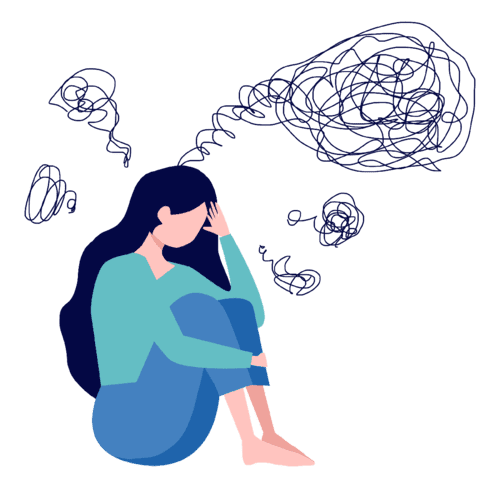Just Right OCD Assessment
Free Just Right OCD Assessment

What is Just Right OCD Assessment?
The Just Right OCD Assessment is a diagnostic tool used to evaluate symptoms of Obsessive-Compulsive Disorder (OCD). It focuses on the concept of “just right” experiences, where individuals with OCD may feel compelled to perform repetitive behaviors until they sense things are “just right.” This assessment helps mental health professionals gauge the severity and nature of an individual’s OCD symptoms, including compulsions and obsessions tied to achieving a specific feeling of completeness or perfection. It aids in accurately diagnosing OCD and tailoring appropriate treatment strategies.
Who can benefit from this Just Right OCD Assessment?
The Just Right OCD Assessment can benefit individuals who suspect they may have Obsessive-Compulsive Disorder (OCD) or are experiencing intrusive thoughts and repetitive behaviors. It’s valuable for those seeking clarity about their symptoms and their severity, as well as individuals who want to understand whether their thoughts and actions align with OCD criteria. The assessment can guide them in making informed decisions about seeking professional help, therapy, or treatment options. It serves as a tool for self-reflection and can empower those struggling with OCD-related concerns to take proactive steps towards managing their mental health and improving their overall well-being.
Just Right OCD Assessment Accuracy
The “Just Right OCD Assessment” is a self-report measure used to evaluate the presence and severity of symptoms related to Obsessive-Compulsive Disorder (OCD). Its accuracy depends on various factors, including individual honesty and self-awareness, the clarity of the questions, and the context in which it’s administered. While it can provide valuable insights, a formal diagnosis should be made by a qualified mental health professional using a comprehensive assessment that considers multiple sources of information. Self-report measures like this can be a helpful starting point, but a thorough clinical evaluation is essential for an accurate diagnosis and treatment plan.
Types of Just Right OCD Assessment
Clinical Interviews:
Mental health professionals can conduct structured interviews to assess the presence of “just right” obsessions and related compulsive behaviors. This involves asking the individual about their specific obsessions, compulsions, triggers, and the impact of these thoughts and behaviors on their daily life.
Structured Clinical Interviews for OCD:
Tools like the OCD-Structured Clinical Interview help mental health professionals ask specific questions related to “just right” obsessions and compulsions in a systematic manner.
Observation and Behavioral Assessment:
Clinicians may observe the individual’s behavior in naturalistic settings to identify any compulsive behaviors that manifest in response to the “just right” obsessions. This can provide insights into how the obsession-compulsion cycle plays out in their daily life.
Severity and Impact Assessment:
In addition to measuring the presence of “just right” obsessions and compulsions, it’s important to assess how these symptoms impact the individual’s functioning, quality of life, and overall well-being.
Psychometric Tools:
Researchers may develop psychometric tools specifically designed to assess “just right” OCD symptoms. These tools can help refine the understanding of this subtype and provide more targeted assessments.
Clinician Judgment:
Experienced mental health professionals can use their clinical judgment to identify “just right” OCD symptoms based on their expertise and familiarity with the disorder.
Handling Just Right OCD Issues
“Just Right” OCD, also known as “symmetry OCD” or “ordering OCD,” involves a need for things to feel just right or balanced. Here are some strategies that might help:
- Therapy: Cognitive-behavioral therapy (CBT) is often the recommended approach for treating OCD. Exposure and Response Prevention (ERP), a type of CBT, is particularly effective for addressing “Just Right” OCD. It involves gradually exposing yourself to situations that trigger your obsessions and then resisting the urge to engage in compulsive behaviors. A therapist can guide you through this process.
- Mindfulness and Acceptance: Mindfulness techniques can help you become more aware of your thoughts and feelings without judgment. Learning to accept uncertainty and discomfort is a crucial skill in managing OCD symptoms.
- Set Time Limits: Give yourself a specific amount of time to arrange or order things in a certain way. When the time is up, intentionally stop and move on, even if things don’t feel perfect. Gradually, you can extend these time limits.
- Challenge Perfectionism: Remind yourself that perfectionism is unrealistic and can be a driving force behind OCD symptoms. Practice embracing imperfections and tolerating discomfort.
- Delay Compulsions: When you feel the urge to arrange or order something, try to delay acting on that urge. Over time, this can help weaken the compulsion and reduce its grip on you.
- Focus on Functionality: Instead of aiming for things to feel “just right,” focus on functionality. Ask yourself whether the arrangement or order serves a practical purpose or if it’s simply driven by the OCD.
- Examine Evidence: Challenge the validity of your obsessions by asking yourself for evidence that supports your need for things to be “just right.” Often, you’ll find that the evidence is lacking or irrational.
- Support System: Engage your friends and family in your treatment process. Let them know how they can support you in resisting compulsions and working toward your treatment goals.
- Self-Care: Engage in activities that promote relaxation and reduce stress. Regular exercise, proper sleep, and a healthy diet can positively impact your overall well-being.
- Medication: In some cases, medication may be prescribed to help manage OCD symptoms. Consult a psychiatrist for a proper evaluation and to discuss medication options.
Remember, seeking the guidance of a licensed mental health professional is crucial in developing a personalized plan for managing your “Just Right” OCD symptoms. OCD is a complex condition, and a qualified therapist can provide you with the tools and support you need to work towards symptom reduction and improved quality of life.

